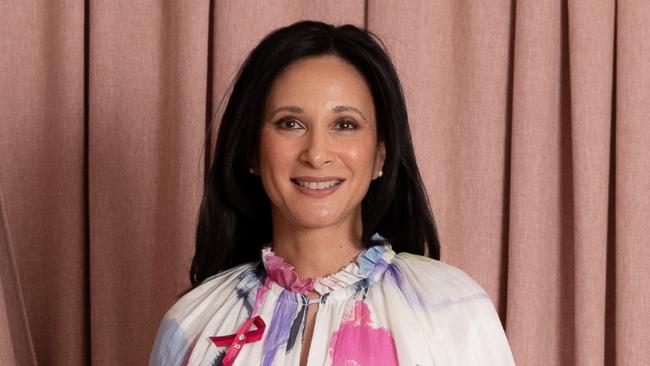Aussie researchers detecting breast cancer before it forms
Three young women under the age of 40 are diagnosed with breast cancer every day. But Aussie researchers are giving hope that this statistic could be changed.

National
Don't miss out on the headlines from National. Followed categories will be added to My News.
Exclusive: Young women could have a better idea why their breast cancer occurs thanks to Aussie research that hopes to identify new treatments that prevent tissue changes becoming tumours.
University of Queensland’s Associate Professor Peter Simpson has identified “striking structural changes” in the DNA of women with early onset breast cancer after studying over 100 tumours.
His team are investigating whether these alterations to the DNA are caused by the inheritance of faulty genes that predispose patients to developing breast cancer.
“Or, it could be that they’ve got the invasive cancer and then this sort of analysis might help identify really good therapies for these patients,” he said.
Currently women can be tested for around a dozen genes that cause breast cancer including the Angelina Jolie BRCA1/ 2 genes but the new research indicates there are other undiscovered genetic faults behind breast cancer in younger women.
The crucial research was one of 12 projects to be funded by the National Breast Cancer Foundation (NBCF) on Mother’s Day.
Prof Riccardo Dolcetti’s team at Peter MacCallum Cancer Centre also received NBCF funding to develop technology that will identify antigens produced by breast cancers with BRCA1/2 mutations.
The team hope to develop vaccines that can target these antigens and test them for safety and effectiveness in combination with anti-cancer drugs.

Breast cancer in young women is rising and it’s the most common cancer diagnosis and the most common cause of cancer death in women in the 20 to 39 year age group, NBCF CEO Professor Cleola Anderiesz said.
“We expect this year alone about 1000 women under the age of 40 will be diagnosed with a new breast cancer and that equates to about three women every day under the age of 40,” she said.
On average one woman aged under 40 will die from breast cancer each week.
Breast cancers in younger women tend to be larger in size and higher grade and survival outcomes for these women are much lower.
Among the 100 young breast cancer patients in Professor Simpson’s new study some have a known family history of the disease and have inherited high risk genes such as BRCA 1/2.
Other women in the study have no family history of the disease. And so the genetic cause is unknown.
“There’s a subgroup of patients that are young and we’re thinking that maybe there’s some driver or accelerator that is making the cancer happen quicker,” he said.
“We saw in a subgroup of young patients that there were these striking structural changes, where the cancer DNA has been damaged quite badly. There’s been some breakdown in the DNA and it’s rearranged itself into a peculiar pattern and we think that could be something that makes the cancer develop quicker,” he said.
The research team will also analyse precancerous breast tissue and they hope the study might lead to “better treatments that can prevent the tissue changes progressing to become an invasive cancer”.
Or, for patients with invasive cancer, and then this sort of analysis might help identify really good therapies for these patients,” he said.
More Coverage
Originally published as Aussie researchers detecting breast cancer before it forms





